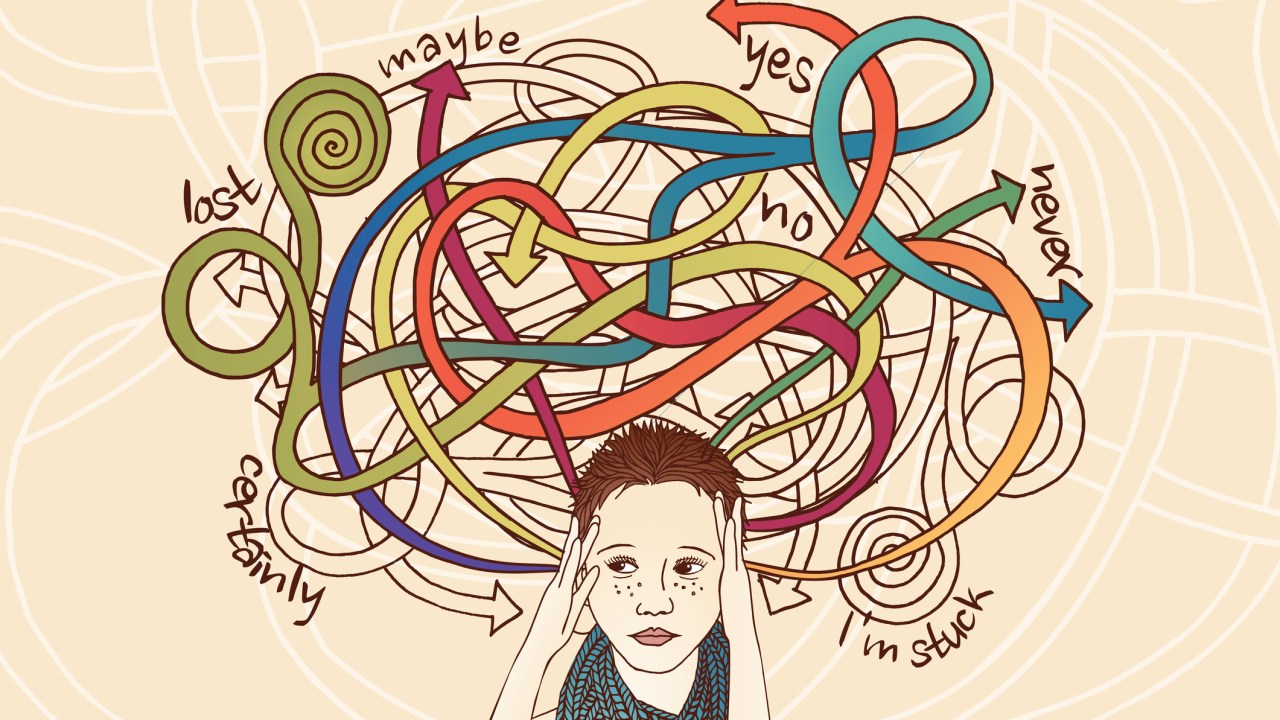
“Everybody is a genius. But if you judge a fish by its ability to climb a tree, it will live its whole life believing that it is stupid.”- Albert Einstein
Mental illness is the leading cause of disability adjusted life years among all major diseases and conditions in the world. An average of 3–4 percent of India’s population suffers from major mental disorders.
Attention deficit/hyperactivity disorder (ADHD) is among the most common neurobehavioral disorders presenting for treatment in children and adolescents. ADHD is often chronic with prominent symptoms and impairment spanning into adulthood.
The prevalence of ADHD is highly variable worldwide, ranging from as low as 1% to as high as nearly 20 percent depending on the diagnostic criteria and the assessment tools used. With an estimated worldwide-pooled prevalence of 5.3 percent, ADHD is the most prevalent mental disorder in children. In India, the prevalence of ADHD has been reported to be 1.6–17.9 percent.
All aspects of a child’s life can be affected by attention deficit/hyperactivity disorder (ADHD). Indeed, it affects not only the infant, but also their parents and siblings, causing family and marital functioning to be disrupted. From preschool to primary school and adolescence, the negative effects of ADHD on children and their families change, with various facets of the condition being more noticeable at different times. ADHD can persist into adulthood, causing both professional and personal life disruptions. Furthermore, ADHD has been related to higher healthcare costs for patients and their families.
People with ADHD have trouble concentrating on tasks and managing their attention, making it difficult to finish a job, for example. ADHD can limit the ability of an individual to learn or work, and it can lead to stress, depression, and anxiety. Often, some people with ADHD find it difficult to remain still. They may be susceptible to acting on impulse and easily distracted.
Although children of any age may be distracted and impulsive, those with ADHD exhibit these characteristics more prominently.
Daydreaming, being distracted and having difficulty concentrating on tasks, making “careless” errors, appearing to not listen while others are speaking, having difficulty with time management and organization, frequently losing daily things, avoiding tasks that require sustained concentration, and having difficulty following instructions are some of the behaviors related to inattention that a person with ADHD may exhibit.
The same symptoms of ADHD are almost same in adults and children and it may cause problems at workplace and personal relationships. The effects of these characteristics differ greatly from individual to individual.
Not everyone with ADHD is noisy and hyperactive. In class, for example, a child can be quiet when facing serious difficulties that they do not communicate. It is seen that in most of the cases involving females, it may cause a short attention span and impulsivity & hyperactivity in males.
In our country Mental illness is still a prohibited topic that people only discuss in whispers and eye glares. It is a big irony for a country which sees hundreds and thousands of cases of mental illness on daily basis.
While ADHD is a disorder of neurodevelopment, it is not considered a learning disability. Symptoms of ADHD, however, will make it harder for you to remember. In certain people who already have learning difficulties, it is also possible for ADHD to occur.
For children and adults, your life may be severely impacted by untreated ADHD. School, jobs, and relationships may be affected. To reduce the effects of the disease, treatment is necessary.
Behavioral therapies, medication, or a combination of the two are widely used to treat ADHD. Talk therapy, is one form of therapy. You or your child will explore how ADHD affects your life through talk therapy, and ways to help you handle it. Behavioral treatment is another therapy type. This therapy will help you or your child to learn how to control the behavior and handle it. When you’re dealing with ADHD, medicine can also be very effective. Medications for ADHD are intended to manipulate brain chemicals in a way that helps you to control your thoughts and behaviors better.
However, it’s important to note that many people with ADHD live happy and successful lives. Some also tout the condition’s advantages. Your first move should be to speak to your doctor if you think you or your child might have ADHD. They will help you or your child find out whether ADHD is a factor. Your doctor will assist you in creating a treatment plan that will allow you to better manage your symptoms and live with ADHD.
- SOURCES-
- https://www.jfmpc.com/article.asp?issn=2249-4863;year=2020;volume=9;issue=1;spage=115;epage=118;aulast=Sharma#:~:text=With%20an%20estimated%20worldwide%2Dpooled,to%20be%201.6%E2%80%9317.9%25.
- https://www.medicalnewstoday.com/articles/323667
- https://adc.bmj.com/content/90/suppl_1/i2
- Pic courtesy- https://www.verywellhealth.com/adhd-attention-deficit-hyperactivity-disorder-included-definition-symptoms-traits-causes-treatment-5084784https://www.additudemag.com/executive-function-disorder-adhd-explained/
